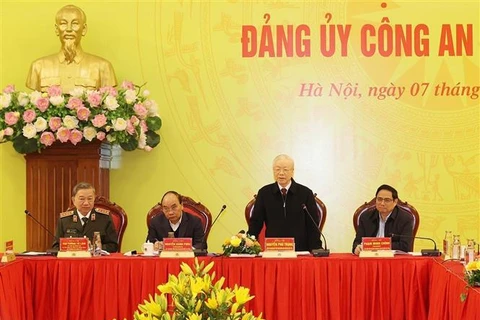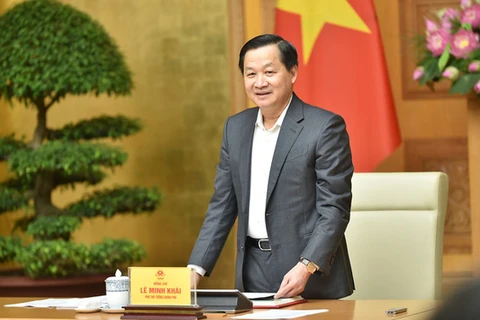 Nguyen Thanh Hai, deputy head of the Party Central Committee’s Commission for Internal Affairs, speaks at the event (Photo: VNA)
Nguyen Thanh Hai, deputy head of the Party Central Committee’s Commission for Internal Affairs, speaks at the event (Photo: VNA) Nguyen Thanh Hai, deputy head of the Party Central Committee’s Commission for Internal Affairs, highlighted the role and contributions of law building and the completion of institutions and laws as well as the organisation of law enforcement to corruption prevention and control.
Pointing out a number of Vietnam's weaknesses in law execution and the combination of the work and law-building activities, Hai stressed the need to take on international experience in law-building in association with the implementation of laws regarding corruption prevention and control.
Nguyen Cong Hong, former Vice Chairman of the National Assembly (NA)'s Law Committee, said that in order to seek optimal solutions to corruption, Vietnam has learned experience from many countries with different political institutions, including the US and those in Asia and Western Europe.
Sharing Japan’s experience in the field, Kono Ryuzo, Chief Advisor of the Project for Enhancing the Quality and Efficiency of Developing and Implementing Laws in Vietnam, gave a number of recommendations for Vietnam in anti-corruption, including strengthening the investigation and prosecution capacity of independent anti-corruption agencies, promoting the transparency of transactions in the public sector, and banning senior officials from working part-time or taking many positions.
Nguyen Hung Quang, head of the law office Quang and Associates and President of Vietnam International Commercial Mediation Centre (VICMC), said that with differences in political institutions, socio-economic development level, historical conditions and cultural and legal practices as well as people's intellectual level, the anti-corruption strategies and measures of countries have its own characteristics and requirements.
But in common, in order to effectively combat corruption, countries often focus on factors such as building a strict and clear legal system in general and legislation on anti-corruption in particular, which is synchronized with political determination from the top leaders, along with the development of a contingent of professional public servants with integrity and good ethics having full authority to handle corruption in an impartial and objective manner, he said./.
VNA























